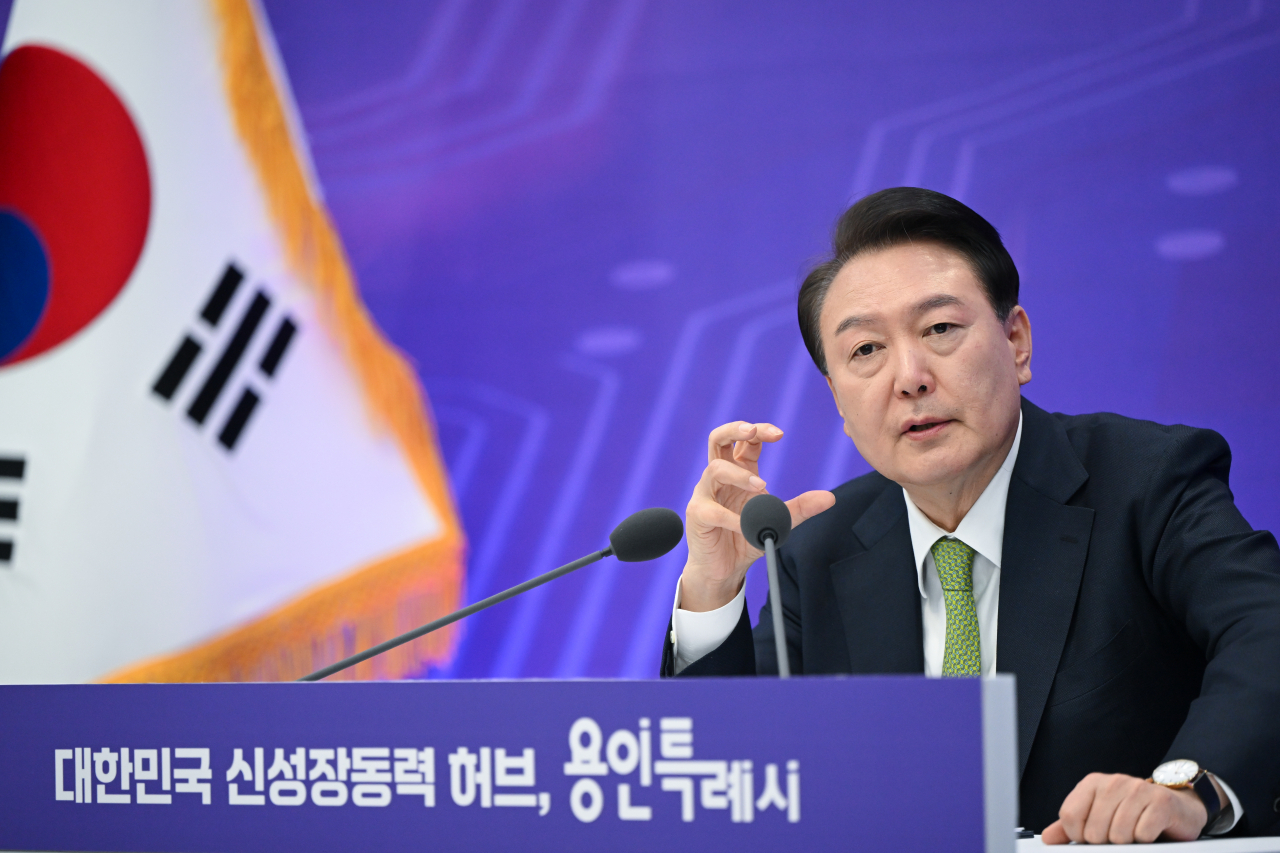
Four cities that have lower-level local autonomy but have populations of over 1 million each may enjoy greater autonomy to set up infrastructure for construction, transportation and education, as the government anticipates a population influx with the advent of new chip industry complexes, according to President Yoon Suk Yeol on Monday.
A new law, if proposed, will ensure the administrative power of a provincial governor in these cities be transferred to the cities' mayors, President Yoon said Monday during his 23rd policy debate in Yongin, Gyeonggi Province.
The mayors of Yongin, Suwon and Goyang in Gyeonggi Province; and Changwon in South Gyeongsang Province will be beneficiaries of the new legislation.
The conservative Yoon administration has called these "special cities," though this is not an official designation and is similar to the official term used for Seoul, which has much greater self-governing powers.
With the new legislation, the mayor of each of these cities would have the power to permit the construction of buildings with 51 stories or taller and the renovation of residential complexes to accommodate more households, as well as the creation of gardens and arboretums.
Currently, the mayors of these cities are not authorized to give permission to such projects without approval from the governor of the province in which the city is located.
The new special law "will lay a groundwork for (the mayors) to nurture the city's strategic industry and map out its urban development plan," Yoon told some 90 participants in the debate.
Yoon also said that Yongin, in particular, is poised to become a "world-renowned semiconductor production base," thereby attracting substantial population growth, according to him.
Yongin anticipates an investment commitment of 500 trillion won ($372.66 billion) by 2047, so the city with a population of 1.1 million will turn into a "world-class semiconductor chip cluster that attracts global talent aspiring to become semiconductor engineers," Yoon said.
"We expect Yongin's population to exceed 1.5 million in the future, so the need to create infrastructure for transportation and housing is in the spotlight," he said, in line with Yongin's own projection of its future population by 2035.
Plans to build or widen highways connecting a semiconductor mega cluster in southern Gyeonggi Province are underway, Yoon also said.
The Yoon administration said the legislation process to empower the mayors will start as early as June.
Meanwhile, Yongin will have a chance to establish South Korea's first vocational high schools that cater to the semiconductor industry, Yoon said.
The Gyeonggido Office of Education will accept applications from those willing to establish chip schools in Gyeonggi Province. The Education Ministry will confirm the plan and is poised to spend a combined 5 billion won to support the province's chip school plans.
The mayors of Yongin, Goyang and Changwon are members of the conservative ruling People Power Party, whereas Suwon's mayor and Gyeonggi Province Gov. Kim Dong-yeon belong to the liberal Democratic Party of Korea.





